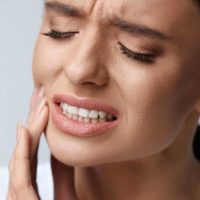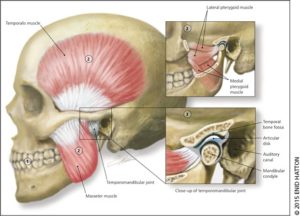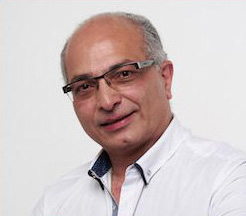
Teeth Grinding
Bruxism
(Teeth Grinding Treatment)
- Treatment to help with grinding and clenching
- Specialist Physician
- Combination of treatment
- Improve sleep
- Reshape, feminise and soften square face
- 15,000 total procedures performed
This treatment is a popular treatment for clenching and grinding.
This may alleviate the inflammation of the temporomandibular joint (or TMJ) and also reshape the face by contouring the jawline.
This treatment requires precision and extensive experience to avoid issues with chewing or smiling.
This procedure maybe covered by insurance if your policy stipulates that it is a medical necessity.
If is generally a safe procedure when done appropriately and the treatment is not done too frequently otherwise there may be a risk of muscle atrophy.
Results usually take effect in two or even three weeks. Patients generally need to return twice a year to maintain.
Book complimentary Bruxism consultation today
"*" indicates required fields

What is bruxism?
Bruxism is the tendency to grind teeth involuntarily, which can often cause jaw pain, headaches and wear away tooth enamel, leading to chipped teeth and sensitivity.
In teenagers, the prevalence of sleep bruxism is around 15%, which then becomes less common with age, impacting 8% of middle-aged adults.
Awake bruxism may be due to a combination of genetic (familial) and environment factors (e.g. stress and anxiety).
Sleep bruxism is a sleep-related chewing activity which may be worsened by abnormal bite, missing teeth or sleep apnoea.
It’s recommended you discuss all treatment options with your dentist or doctor or before using neuromuscular treatment.

How does toxins help with jaw-clenching?
Intramuscular treatment is a breakthrough treatment for bruxism and work by relaxing the masseter muscle – which is the muscle you use to chew.
Alternatively, we may treat into the temporalis or frontalis muscles, depending on your specific situation.
The effects usually take 3-5 days to work, and results may last 3-6 months.
Many patients notice a reduction in headaches and head and jaw tension.
COST: $1000
PROCEDURE LENGTH: 20 MINUTES
It lasts approximately 4-6 months, and when repeated treatments are performed, the muscle will continue to shrink over time, so treatment intervals can be increased.
Why Géniale?
If you come to Géniale for a Bruxism treatment you’ll be in the expert hands of Dr Mike Shenouda. Dr Shenouda is the founder of Géniale and has been in cosmetics since he obtained his Bachelor’s degree in Medicine in 1986. With a diploma in Practical Dermatology, Skin Cancer Surgery, a Certificate in Advanced Cosmetic Medicine, and as a current member of the Australasian College of Aesthetic Medicine, Dr. Shenouda is incredibly passionate about providing the best possible results for all of our Géniale patients.

We’d Love To Hear From You!
Take the first step towards a better night’s sleep.
Questions & Answers
What are the symptoms of bruxism?
Symptoms of bruxism include:
- Tooth grinding
- Jaw pain
- Headaches
- Gum sensitivity
- Exposed enamel
- Chipped teeth
- Broken teeth
- Tooth sensitivity
- Cracked fillings
- Tooth fractures
- Shoulder and neck ache
- Pain that feels like an earache (but not ear pain)
- Sleep disruption
- Dull temple headaches
- Locked jaw, jaw that won’t open or close properly
- Clicking or popping sounds
What are the side effects of this treatment for bruxism?
The procedure is generally very well-tolerated and patients can go straight back to work.
It is generally a painless, 20-minute procedure involving 4-6 treatments into the jaw muscles.
When performed by an experienced doctor side effects are minimal but can include:
- Pain, swelling or bruising at treated site (common)
- Crooked smile or drooling (rare)
- Muscle weakness, breathing problems loss of bladder control (Extremely rare)
Should I try other treatments first?
Many dentists or doctors suggest wearing night-time splints and mouthguards, stress reduction techniques or biofeedback. If medication is related to the bruxism, changing the medication or reducing the dose can help.
However, once these avenues have been exhausted, intramuscular treatment are increasingly proving to be a popular option for bruxism.
A recent study in Neurology journal found botulinum treatments: “Effectively and safely improved sleep bruxism in this placebo-controlled pilot trial. A large multi-center trial is needed to confirm this encouraging data.”
How does toxins help with jaw-clenching?
Intramuscular treatment are a breakthrough treatment for bruxism and work by relaxing the masseter muscle – which is the muscle you use to chew.
Alternatively, we may treat into the temporalis or frontalis muscles, depending on your specific situation.
The effects usually take 3-5 days to work, and results may last 3-6 months.
Many patients notice a reduction in headaches and head and jaw tension.
What are the side effects of neuromuscular treatments for bruxism?
The procedure is generally very well-tolerated and patients can go straight back to work.
It is generally a painless, 20-minute procedure involving 4-6 treatments into the jaw muscles.
When performed by an experienced doctor side effects are minimal but can include:
- Pain, swelling or bruising at treatment site (common)
- Crooked smile or drooling (rare)
- Muscle weakness, breathing problems loss of bladder control (Extremely rare)
It’s recommended you discuss all treatment options with your dentist or doctor or before using neuromuscular treatment.
*Disclaimer: All procedures have risks. All results are individual. Speak to your doctor if you are concerned about Bruxism.
